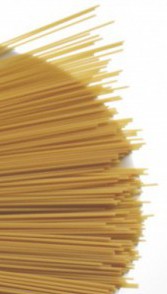What else comes in ‘ribí’ besides ‘gruaig’? Posted by róislín on Jun 8, 2015 in Irish Language
(le Róislín)
![What does this picture have in common with the one below? (close-up of photo by Wen-Yan King (NGO [http://www.medapt.org medapt)] (Flickr) [CC BY 2.0 (http://creativecommons.org/licenses/by/2.0)], via Wikimedia Commons)](https://blogs.transparent.com/irish/wp-content/uploads/sites/17/2015/06/682px-Baba_in_Nepal-e1433966607848.jpg)
What does this picture have in common with the one below? (close-up of photo by Wen-Yan King (NGO [http://www.medapt.org medapt)] (Flickr) [CC BY 2.0 (http://creativecommons.org/licenses/by/2.0)], via Wikimedia Commons)
‘In the last blagmhír, we saw a picture of an eachtardhomhandach without so much as a ‘ribe gruaige‘ on his head.
“Ribe gruaige‘ means “a strand of hair.” “Gruaig” changes to “gruaige” because we’re saying “of hair.” For the pronunciation of “ribe,” see the tip below. The plural, as you probably figured out from teideal na blagmhíre seo, is “ribí.”
Here are a few more ways the word “ribe” can be used. In each case, I’ve left a blank to fill in for the translation. There are at least five ways that “ribe” can be translated; freagraí thíos:
ribe féasóige: a ___________ of a beard
Tá ribí ar an madra: There are (raised) _____________ on the dog.
ribe féir: a ________________ of grass
ribe lín: a __________________ of flax
ribe bolgán solais: a ___________ of a light bulb (probably mostly superseded now by ________)
And one more, back to our basic translation:
ribe spaigití: a ________________ of spaghetti
Getting back to “hair,” there are more ways to refer to a strand of hair in Irish, including the following: dlaoi, dlaíóg, gibne, and tointe (NB: no síneadh fada for that last one, nothing to do with “tóineanna“!). But looking further into those will have to wait for some future day.
BTW, If you see “ribe” translated simply as “strand,” remember this is “strand” as in the examples above, not as a “beach.” In the UK and Ireland, a “beach” is often called a “strand,” and in Ireland a sign for “An Trá” may be pointing you to “The Strand.” So “trá” is “beach” or “strand,” and a nice parallel to the Welsh “traeth.” Even the “Strand” in London reflects the same linguistic history, originally referring to the banks of the River Thames.
Sin é don mhír seo. SGF — Róislín

What does this picture have in common with the one above? Both can be described as consisting of ribí in Irish. (http://www.publicdomainpictures.net/view-image.php?image=47147&picture=spaghetti-on-plate, cropped for this post)
Fuaimniú (pronunciation): For “ribe,” just remember that it’s Irish, not English, so it doesn’t sound at all like the English words “vibe” or “bribe.” The final “e” of “ribe” is pronounced, albeit sort of minimally, almost like “uh.” The emphasis is on the first syllable, not on the final “e.”
The vowel in the middle is a short “i,” so it’s like the Irish “tirim” or the English “rib,” although the meaning is completely different.
Also remember that although this word is spelled with “r” followed by “i,” it’s not a “slender r” (tirim, Máire, breá, Muire, srl.). Why not? “R” in the initial position is pronounced broad in Irish, not slender, even if followed by a “slender vowel.” This also applies to many other words in Irish, such as:
rí, king, ríthe, kings; rí, forearm, ritheacha, forearms; ridire, a knight; riail, rule, riail sleamhnáin, slide-rule (if anyone talks about those anymore!), and probably hundreds more
Freagraí:
ribe féasóige: a bristle of a beard
Tá ribí ar an madra: There are (raised) hackles on the dog. There are more ways to refer to “hackles” on dogs or people, but they’ll have to wait for another post.
ribe féir: a blade of grass
ribe lín: a shred of flax
ribe bolgán solais: a filament of a light bulb (probably mostly superseded now by filiméad)
ribe spaigití: a strand of spaghetti

Build vocabulary, practice pronunciation, and more with Transparent Language Online. Available anytime, anywhere, on any device.




Leave a comment: